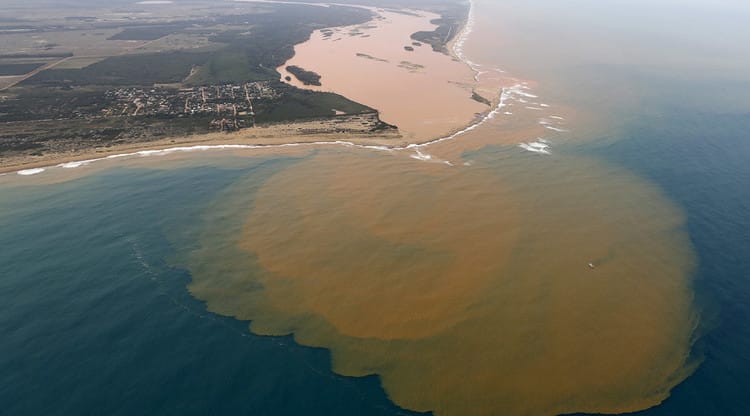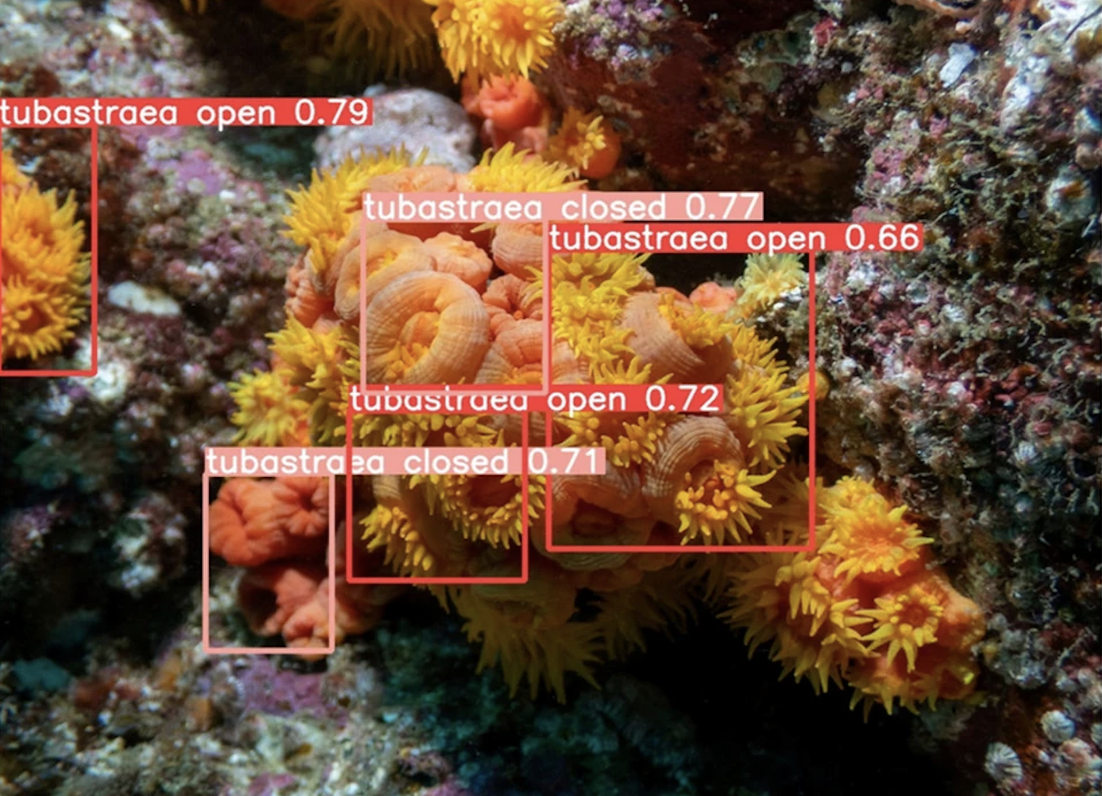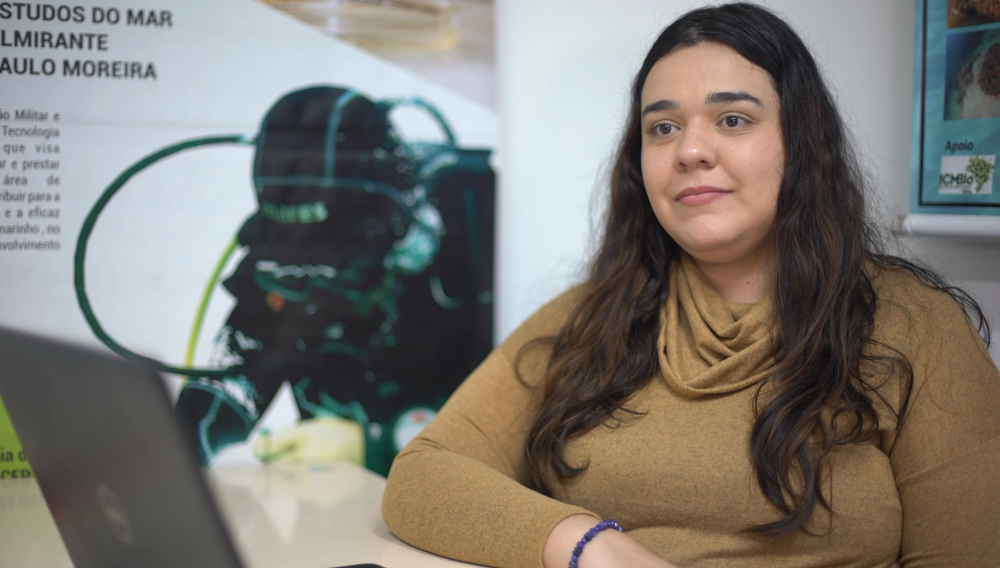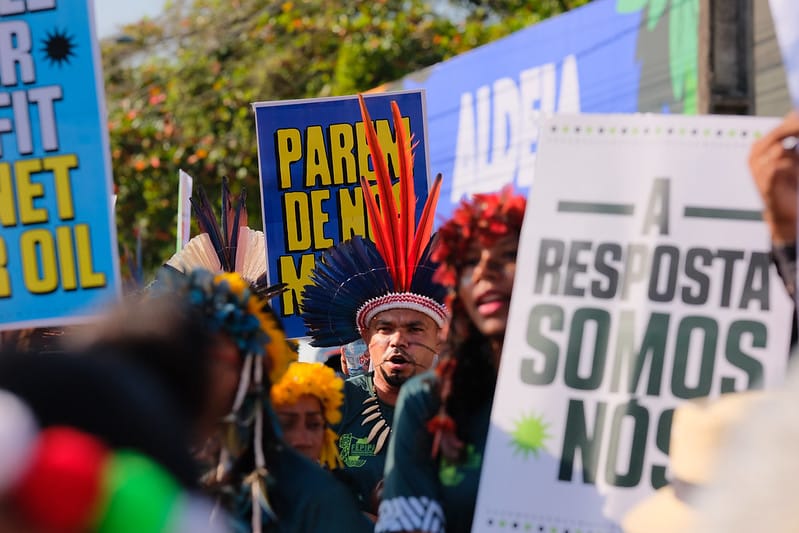
*By Tássia Biazon and Germana Barata
On the morning of November 15, the streets of Belém’s historic center were filled with a vibrant, diverse, and conscious crowd. It was the Global Climate March, part of the social movements’ program during COP30. Convened by the People’s Summit, the event gathered around 70,000 participants, according to organizers, including Indigenous peoples, quilombola communities, rural workers, young activists, artists, international groups, and traditional communities.
The 4.5 km route stretched from the São Brás Market to the Aldeia Cabana. The Minister of the Environment and Climate Change, Marina Silva, and the Minister of Indigenous Peoples, Sônia Guajajara, led the way with their speeches. Children, youth, adults, and elders walked side by side, accompanied by Indigenous chants, political speeches amplified from sound trucks, traditional rhythms from Pará such as carimbó, and countless voices raised in defense of the forest, the waters, and the animals.
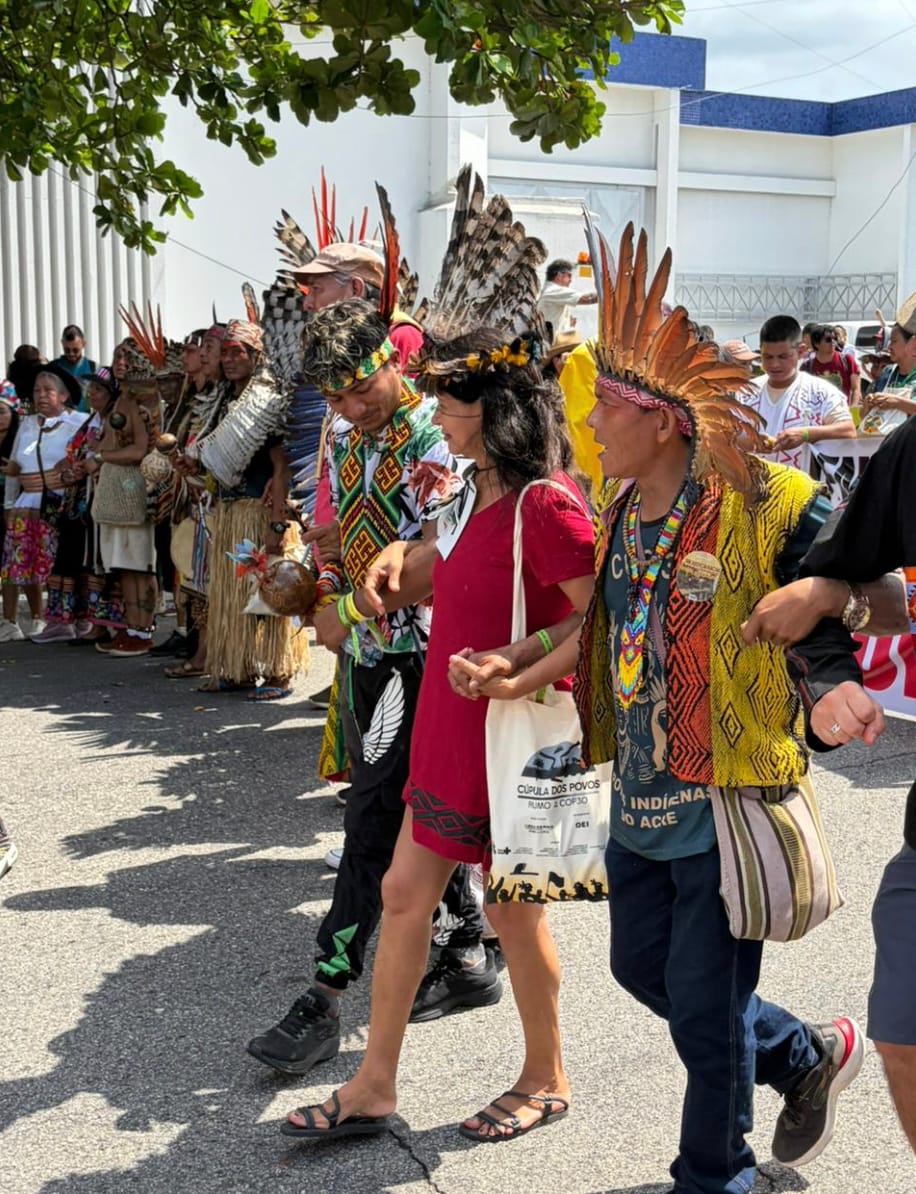
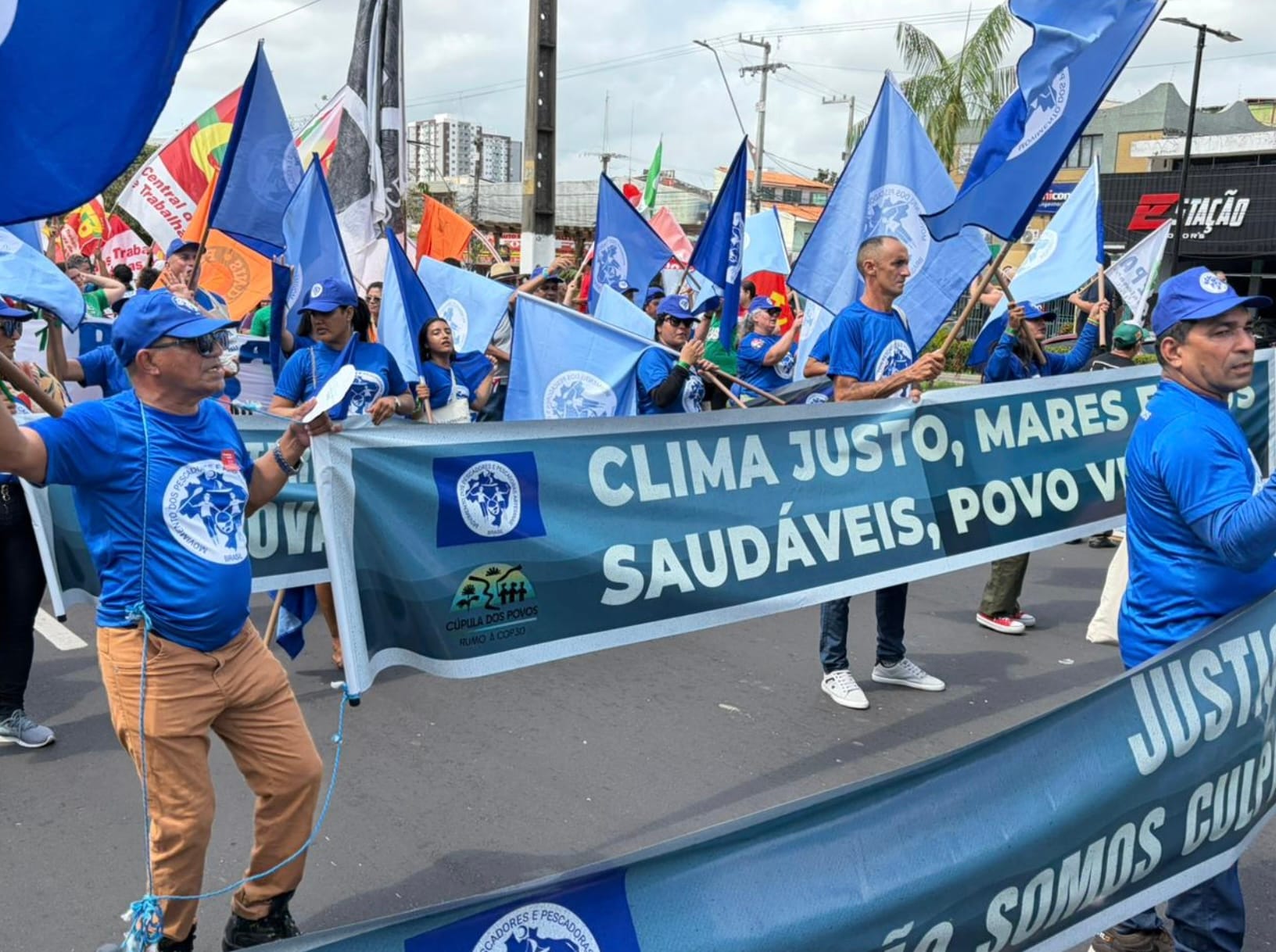
The Global Climate March brought together different social movements aligned towards social justice and planetary health / Images: Ressoa Oceano
It had been years since a COP had witnessed such a massive demonstration. The first march took place at COP21, when the Paris Agreement was signed exactly ten years ago, drawing an estimated crowd of 140,000 people. In recent years, however, demonstrations have been banned in Azerbaijan, the United Arab Emirates, and Egypt.
On the same Saturday, thousands joined Belém’s chorus in Glasgow, United Kingdom –host city of COP26– to demand an end to fossil fuel use, defend the planet, and protest against the genocide in the Gaza Strip.
Through words printed on shirts, signs, and chants, participants turned art into protest, raising the central banner: climate change. In a symbolic act, they staged a “funeral” for fossil fuels—coffins labeled “coal,” “oil,” and “gas” were carried by people dressed in black, a vivid reminder of the urgent need for an energy transition.
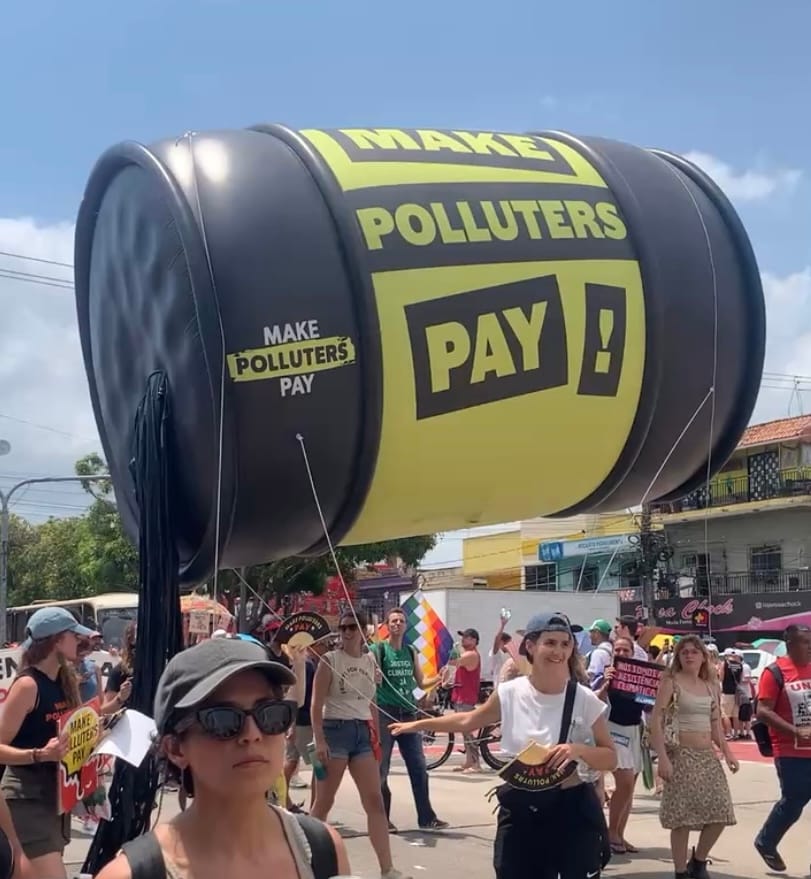
Indigenous communities, quilombola communities, fishermen, shellfish gatherers, babaçu nut breakers, small farmers, riverside dwellers, workers, students, activists, and other representatives of society called for climate justice. This justice draws attention to the unequal and severe impact of climate change, which disproportionately affects the most vulnerable social groups, generally those with less decision-making power in climate policies. During the march, protesters made their voices heard, so that the policies to be defined this week include their demands, the territorial rights of indigenous peoples, and the recognition of traditional knowledge.

But the demands went further, showing that climate justice is also tied to decent housing, agrarian reform, food security, territorial sovereignty, animal rights, and more. From Amazonians to international activists, the message was clear, simple, and powerful: “We are the answer.”
This moment was both historic and symbolic at the COP of the Amazon—a biome that spans nine countries and is home to 375 ethnic groups—highlighting the strength of Indigenous movements and both national and international social demands.
The March was not the only demonstration at COP30. On Monday, November 17, for example, Indigenous movements took to the streets to demand the demarcation of their territories. They were joined by the Minister of Indigenous Peoples, Sônia Guajajara, who, on the same day, announced the official recognition of four territories and progress in the demarcation processes of sixteen more.
“It’s about historical justice. It’s about recognizing that there is no sustainable future without ancestral knowledge and without the territorial management of traditional peoples and communities. May we be remembered as the generation that honored this age-old wisdom and acted to honor this debt,” the minister argued.
The COP in Belém highlights the presence and inseparability, or the necessary connectivity, between climate policies and public engagement in solving complex problems, the result of a relationship of exploitation and domination of nature that part of humanity has established as the norm. The voice of social movements warns that the climate crisis cannot be treated merely as a technical or diplomatic matter, but rather as a global struggle that depends on collective effort, on collective effort.
Autor

Somos uma rede colaborativa de comunicação sobre o oceano. Apostamos na ação conjunta de atores sociais diversos para mobilizar ações para conscientização e mudança de comportamento em relação à cobertura, percepção e visibilidade sobre o oceano.

